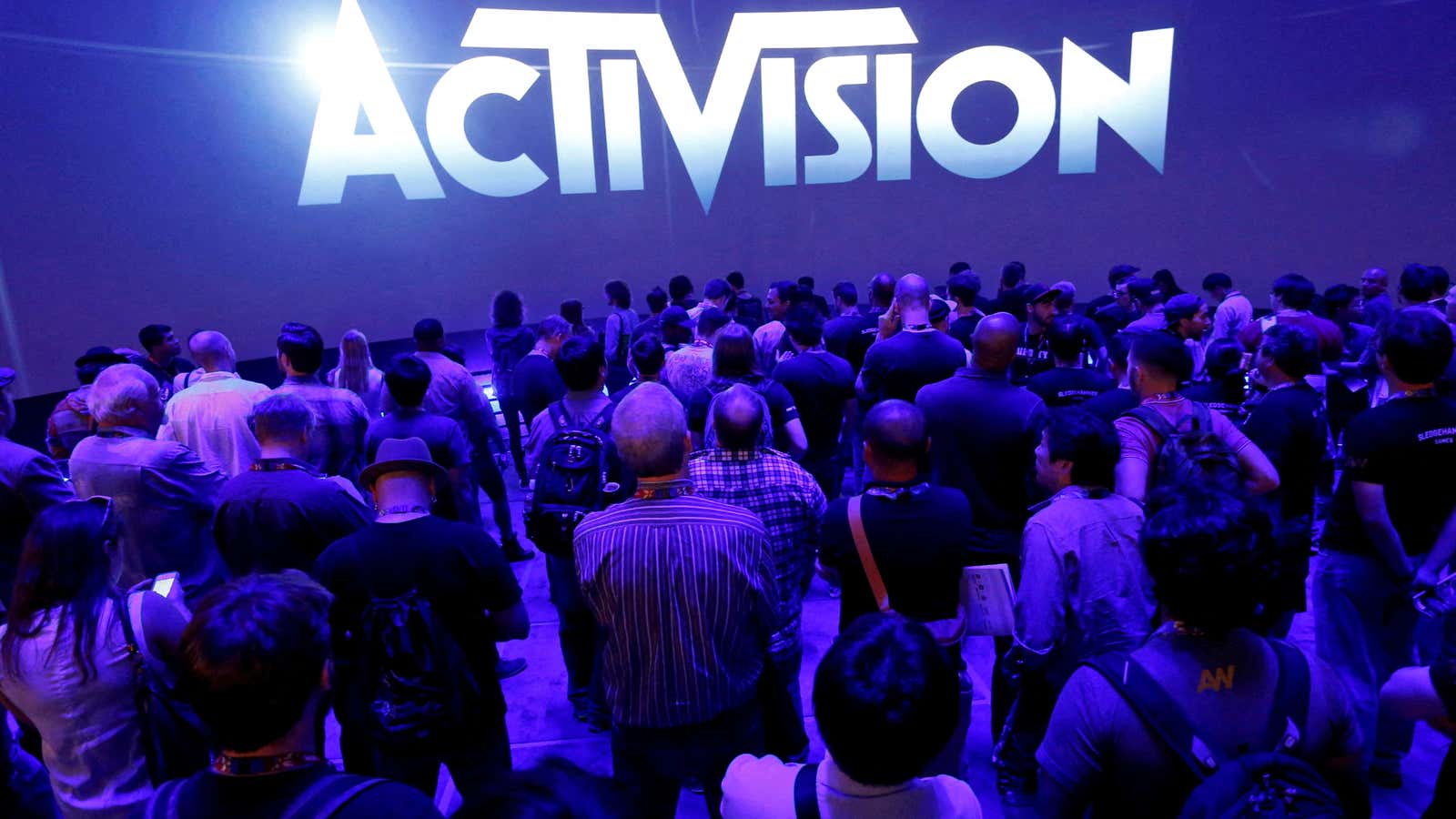On Monday (May 23), a small group of employees at video game company Raven Software voted to unionize. Formed by quality assurance testers at a subsidiary of the video game giant Activision Blizzard, a developer of popular titles such as Call of Duty and Candy Crush, it is the first union at a major US video game company, and the second certified gaming union in the US. If current trends hold, it’s unlikely to be the last.
The Game Workers Alliance (GWA), now recognized by the National Labor Relations Board (NLRB), stated on Monday: “Activision Blizzard worked tirelessly to undermine our efforts to establish our union, but we persevered.” Activision Blizzard has not publicly stated if it will file an objection to the union election, though it has previously pushed back publicly against unionizing efforts. Microsoft, which is in the midst of a $69 billion acquisition of Activision Blizzard, said it respects the right to decide on unionization and would honor the employees’ decision.
Activision Blizzard has been the subject of an SEC investigation, a class-action lawsuit, and a complaint from the Communications Workers of America surrounding accusations of sexual harassment, discrimination, and interference with collective action rights. A report last year also alleged CEO Bobby Kotick’s own history of abuse and harassment.
Employees conducted multiple walkouts in response to the allegations of harassment and discrimination lobbied against the company. In its mission statement, GWA calls for “a more sustainable, equitable place where transparency is paramount.”
More unions to come?
Although the GWA has just over 20 members, representing less than 1% of the company’s 10,000 employees, its formation is meaningful.
Union membership, particularly in the private sector, has been low for years. In 2021 just 1.2% of professional and technical services employees (which includes tech workers) were unionized, according to the Bureau of Labor Statistics.
However, there is an ongoing shift in the broader tech industry. A survey suggests that 50% of tech workers want to join a union, with a record number of tech unions forming last year.
The current wave of labor organizing in tech can be traced back to the 2018 “techlash,” as whistleblowers and employees exposed questionable ethics, privacy concerns, and cover-ups in the industry. The public became more skeptical of tech companies, as did their own employees. Racial, gender, and sexual orientation-based discrimination have especially driven labor organizing, according to Collective Action in Tech, a volunteer-run organization tracking industry developments.
Gaming, which straddles the tech and creative industries, may also be undergoing its own wave of organizing. Unionizing efforts are happening at other companies, including Nintendo and BioWare, but not without pushback. Nintendo has denied union-busting allegations, while Epic, the developer behind Fortnite, has been accused of refusing to hire someone due to their labor advocacy.
Employees, however, are continuing to organize in an effort to secure better pay, benefits, job security, and protections against their employers.
The formation of the GWA represents a milestone for an industry that regularly faces accusations of labor exploitation and workplace sexism.
